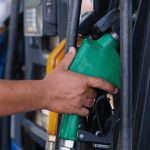Speaking of cheapest petrol prices, the average price of fuel around the world is valued at ₦1970.71 per litre and $1.29 per litre.
However, there is a substantial difference in these prices among countries. Generally, richer countries have higher prices, while poorer countries and the countries that produce and export oil have significantly lower prices.
The differences in prices across countries are due to the various taxes and subsidies for petrol, as all countries have access to the same petroleum prices of international markets, but then decide to impose different taxes.
Cheaper petrol means lower operational costs in businesses like shipping, manufacturing, and agriculture, which boosts profitability and encourages expansion.
In this article, data from GlobalPetrolPrices.com is used to highlight top 10 countries with cheapest petrol prices.
ALSO READ: Top 10 countries with cheaper petrol prices in May 2025
- Libya—$0.028 (₦42.397)
Libya, rich in oil reserves, keeps fuel prices very low through heavy government subsidies. This long-standing policy helps ensure affordable energy for citizens and supports social stability. However, it pressures government finances and can encourage problems like fuel smuggling.
- Iran—$0.029 (₦43.740)
Iran has large oil and natural gas reserves and keeps fuel prices very low through heavy government subsidies. This approach is part of its economic strategy to support citizens and maintain stability, even though it places a major strain on the national budget. The July 2025 price reflects a recent sharp decrease, making fuel extremely affordable.
- Venezuela—$0.035 (₦53.519)
Venezuela holds the world’s largest proven oil reserves. For decades, its socialist government has kept petrol prices extremely low through heavy subsidies, making fuel nearly free for citizens. Although economic crises and international sanctions have hurt the country’s oil production and refining ability, the government’s commitment to cheap fuel remains a major reason for its low prices.
- Angola—$0.327 (₦500.253)
As one of Africa’s top oil producers, Angola uses fuel subsidies as a form of social support. Although the government has started reducing these subsidies, they still help keep fuel prices low compared to global rates. However, as the local currency weakens, the cost of maintaining these subsidies rises, since refined fuel is mostly imported.
- Kuwait—$0.343 (₦524.827)
Kuwait, rich in oil with large petroleum reserves, keeps fuel prices very low by heavily subsidising energy products like gasoline for its citizens. Although there have been small price changes to encourage more careful energy use, the subsidies remain strong. As a result, fuel is cheap, leading to very high levels of consumption.
- Algeria—$0.353 (₦540.216)
Algeria is one of Africa’s top producers of oil and natural gas. Most of the fuel used in the country comes from its supply and is heavily subsidised by the government. This support helps keep fuel prices low for citizens, using the nation’s natural resources to make energy more affordable.
- Egypt—$0.385 (₦588.000)
Egypt is one of Africa’s key hydrocarbon producers. To keep fuel affordable for its citizens, the government has long offered major subsidies. Although efforts to cut back on these subsidies have been ongoing to ease pressure on the national budget, fuel prices remain fairly low thanks to continued support and domestic oil production.
- Turkmenistan—$0.427 (₦653.465)
Turkmenistan, with the fifth-largest proven natural gas reserves and its own oil production, keeps fuel prices very low for its citizens. This is due to strong government control over the energy sector and generous subsidies for domestic use, a typical feature of energy-rich countries with state-run economies.
- Kazakhstan—$0.465 (₦710.676)
Kazakhstan, a leading oil and gas producer in Central Asia, keeps fuel prices low through government subsidies and price controls. Although there have been efforts to allow market-based pricing, public protests often force the government to keep or reinstate these controls to ensure fuel remains affordable for citizens.
- Malaysia—$0.483 (₦738.875)
Malaysia is an oil-producing country that uses an Automatic Pricing Mechanism (APM) to adjust fuel prices weekly, with subsidies included to help manage costs. While the government plans to review and restructure these subsidies, it still supports fuel prices to reduce the cost of living, keeping local pump rates well below international market levels.
ALSO READ TOP STORIES FROM NIGERIAN TRIBUNE
WATCH TOP VIDEOS FROM NIGERIAN TRIBUNE TV
- Let’s Talk About SELF-AWARENESS
- Is Your Confidence Mistaken for Pride? Let’s talk about it
- Is Etiquette About Perfection…Or Just Not Being Rude?
- Top Psychologist Reveal 3 Signs You’re Struggling With Imposter Syndrome
- Do You Pick Up Work-Related Calls at Midnight or Never? Let’s Talk About Boundaries






